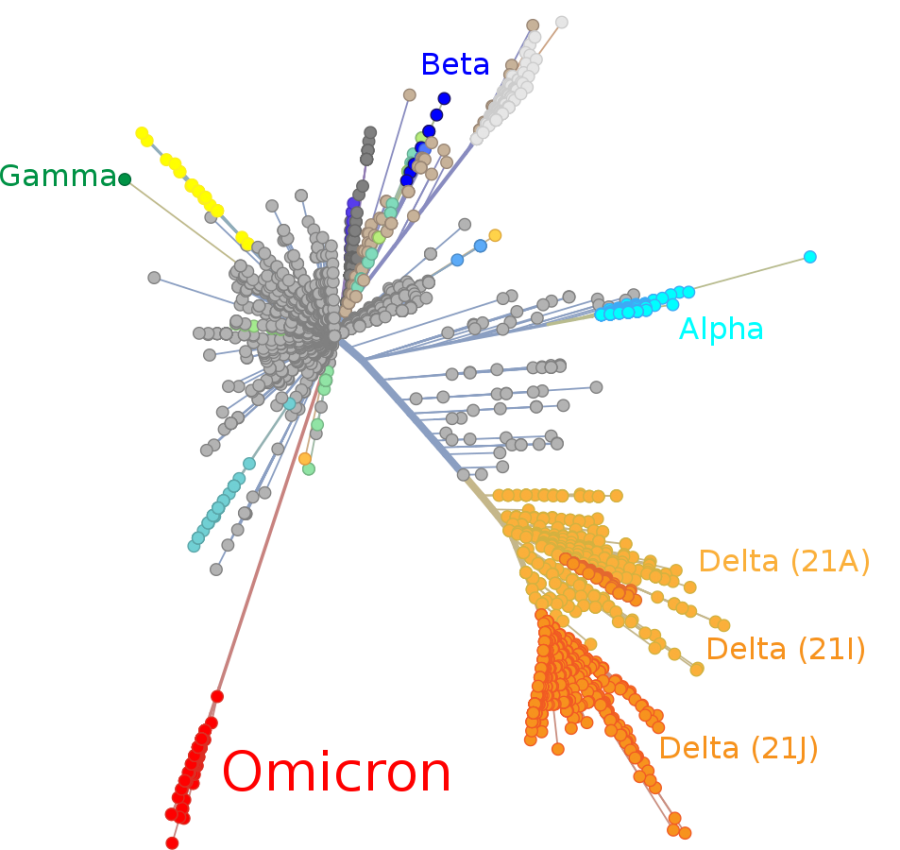Omicron variant in California and countries around the world
Omicron variant and other major or previous variants concern of SARS-CoV-2 depicted in a tree scaled radially by genetic distance, derived from NextStrain on Dec. 1, 2021. The diagram visualizes the significant genetic differences between Omicron and other variants.
On Dec. 1, the new Omicron COVID-19 variant was detected in California. The individual who contracted the variant had returned from South Africa to California on Nov. 22. The person is fully vaccinated, has been self-quarantining, and the people who were in close contact have been tested negative. Health officials stated that the individual had mild symptoms and is improving in condition. Governor Gavin Newsom has stated that the Omicron variant is unlikely to cause shutdowns in California.
The Omicron variant was first reported on Nov. 25 in South Africa and quickly spread around the world. As this story goes to press, 38 countries have reported cases of the Omicron variant.
A group of experts formally named the Technical Advisory Group on SARS-CoV-2 Virus Evolution convened on Nov. 26 and recommended the World Health Organization (WHO) classify the B.1.1.529 variant as a “variant of concern,” or VOC. Subsequently, this variant was named “Omicron” by the WHO and was given the VOC designation, the fifth COVID-19 variant to have so. The label “variant of concern” means that Omicron has been associated with at least one of the following changes:
- increase in transmissibility or detrimental change in COVID-19 epidemiology; OR
- increase in virulence or change in clinical disease presentation; OR
- decrease in effectiveness of public health and social measures or available diagnostics, vaccines, therapeutics
The Omicron variant carries more than 50 genetic mutations. At least 26 of the mutations are unique to the variant and more than 30 of the mutations are in the spike protein. As of Dec. 3, there is no clear scientific consensus that the Omicron variant is more transmissible or causes more severe disease than other SARS-CoV-2 variants. Right now, researchers around the world conducting studies to better understand the nature of Omicron.
As always, you can help stop the spread of COVID-19 by getting vaccinated, wearing masks indoors and outdoors, frequently washing your hands, and following other COVID-19 health recommendations.
Lawrence Feng is a senior and is excited for his second year in Journalism. This year, he is the News...

Alicia Kim is a senior in her fourth year as a journalist for The Stampede. In her spare time, she enjoys...

Joshua Balagot is a junior at Monte Vista. This will be his second year on The Stampede and will continue...












